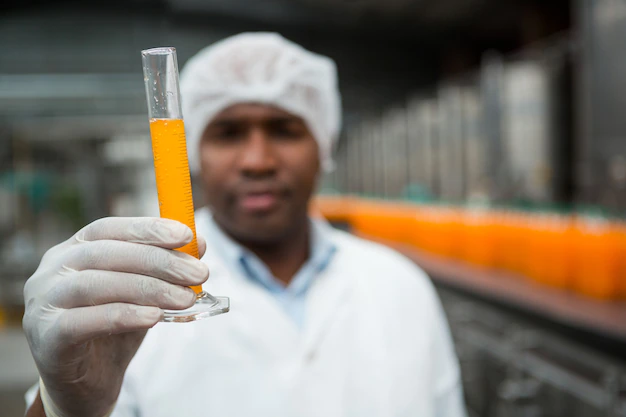- Food Safety Specialists play a crucial role in ensuring the safety and quality of food products. They are responsible for implementing and maintaining food safety programs within food production facilities, restaurants, or other food establishments.
- Their primary objective is to prevent foodborne illnesses and outbreaks by identifying potential hazards, assessing risks, and implementing control measures to maintain a safe food supply chain.
- Food Safety Specialists are knowledgeable about local and international food safety regulations, including FDA (Food and Drug Administration) guidelines and HACCP (Hazard Analysis and Critical Control Points) principles. They stay up-to-date with evolving regulations and industry best practices.
- They conduct regular inspections and audits to ensure compliance with food safety standards and regulations. This involves assessing hygiene practices, monitoring temperature controls, inspecting food storage areas, and verifying proper labeling and packaging.
- Food Safety Specialists develop and deliver training programs for employees to enhance their understanding of food safety practices, including proper food handling, sanitation, and personal hygiene. They also educate management and staff on emerging food safety issues and preventive measures.
- They investigate and respond to food safety incidents, customer complaints, and potential product recalls. They collaborate with relevant authorities, such as health departments or regulatory agencies, to address any identified issues promptly and effectively.
- Risk assessment and management are critical components of a Food Safety Specialist’s job. They analyze data and trends to identify potential risks, develop strategies to mitigate those risks, and continuously monitor and evaluate the effectiveness of control measures.
- Food Safety Specialists are skilled in conducting root cause analysis and implementing corrective actions to prevent recurring food safety incidents. They are proactive in identifying potential areas of improvement and recommending process enhancements to maintain a high level of food safety.
- They collaborate with cross-functional teams within an organization, including production, quality assurance, and regulatory affairs, to ensure that food safety practices are integrated into all aspects of the business.
- Continuous learning is essential for Food Safety Specialists. They attend relevant seminars, conferences, and training programs to stay updated on emerging food safety trends, technologies, and regulatory changes. They may also pursue certifications such as the Certified Food Safety Professional (CFSP) designation to enhance their professional credentials.
Join 'Farmers Mag' WhatsApp Channel
Get the latest Farming news and tips delivered straight to your WhatsApp
CLICK HERE TO JOIN






